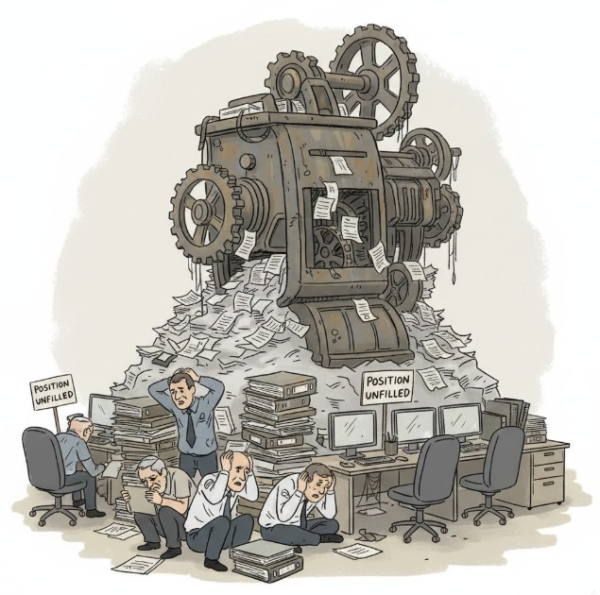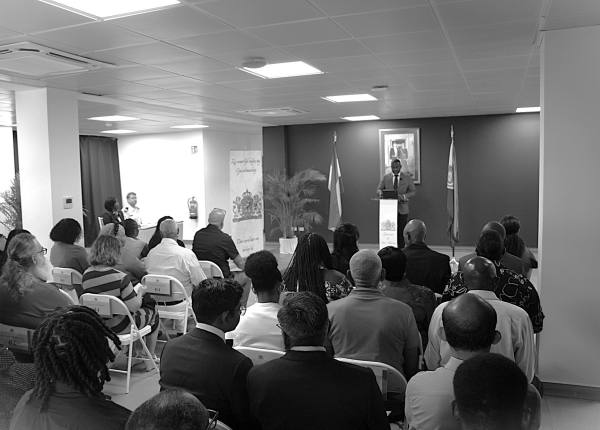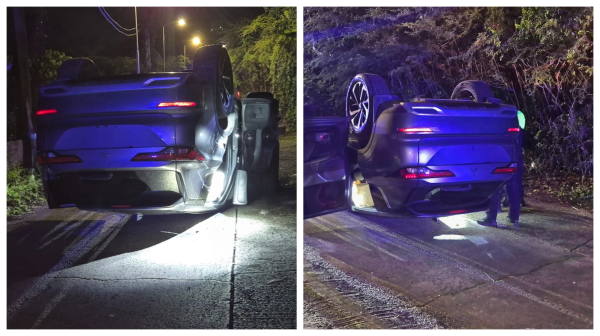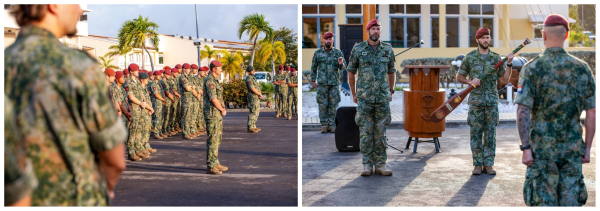 PHILIPSBURG:--- The government’s operational capacity is facing a severe crisis, not from budget cuts but from a systemic breakdown within its own Human Resources framework. Internal sources confirm that years-long delays in updating departmental structures, combined with a stalled recruitment system, have led to critical understaffing, threatening the delivery of public services.
PHILIPSBURG:--- The government’s operational capacity is facing a severe crisis, not from budget cuts but from a systemic breakdown within its own Human Resources framework. Internal sources confirm that years-long delays in updating departmental structures, combined with a stalled recruitment system, have led to critical understaffing, threatening the delivery of public services.
Formation Updates Stalled for Years, Blocking Vital Hires
At the center of the issue are "formation updates"—the official blueprints for departmental staffing—which have been pending for years. This administrative limbo has left many departments legally unable to fill vacant positions or create new ones essential for their operations.
"We cannot fill vacancies because the current formation doesn't allow for the position," one internal report states, describing a situation where departments are blocked from hiring personnel they urgently need. Despite the pressing need, no clear timeline for finalizing these crucial updates has been provided, leaving department heads in a state of prolonged uncertainty.
Severe Understaffing Creates "Unsustainable" Pressure
The direct consequence of this bureaucratic paralysis is severe understaffing across numerous government ministries. Departments are operating with far fewer staff than required, placing immense workload pressure on the existing civil servants. The strain is leading to operational delays and postponements, with many tasks being pushed aside as staff struggle to keep up. Insiders describe the environment as "structurally unsustainable."
This internal slowdown has created an operational domino effect. When one understaffed department cannot complete its tasks, others that depend on its output are also delayed. This chain reaction slows down the entire government apparatus, delaying projects and impacting the ability of ministries to meet their deadlines.
Recruitment Process Described as a "Black Hole"
Even when departments receive approval to hire, the recruitment process itself is reportedly broken. Potential candidates face months-long delays with little to no communication from HR departments. Multiple qualified applicants have withdrawn their interest after being left in the dark, often accepting positions elsewhere. As a result, critical roles remain unfilled for extended periods, worsening the internal staffing crisis and actively repelling talent.
Calls for Accountability and a Concrete Plan
The growing crisis has prompted urgent questions about accountability and the path forward. Officials and civil servants are demanding answers to why the system has been allowed to deteriorate to this point. Key questions remain unanswered:
- Who is responsible for the multi-year delays in finalizing formation updates?
- Why are recruitment processes taking months without basic communication to applicants?
- What is the government's concrete plan to resolve these capacity issues and prevent further decline in public service delivery?
Without immediate and decisive action to overhaul the formation and recruitment systems, the government's ability to function effectively remains in jeopardy. The current gridlock not only burns out dedicated public servants but also directly compromises the services that citizens rely on every day.






 HARBOUR VIEW, PHILIPSBURG:--- On Tuesday, February 17, 2026, the first naturalization ceremonies of 2026 were held at the Cabinet of the Governor of Sint Maarten. During two separate ceremonies, a total of 84 individuals took the declaration of allegiance before the Governor of Sint Maarten, His Excellency Mr. Ajamu G. Baly, and, in doing so, formally obtained their Dutch citizenship.
HARBOUR VIEW, PHILIPSBURG:--- On Tuesday, February 17, 2026, the first naturalization ceremonies of 2026 were held at the Cabinet of the Governor of Sint Maarten. During two separate ceremonies, a total of 84 individuals took the declaration of allegiance before the Governor of Sint Maarten, His Excellency Mr. Ajamu G. Baly, and, in doing so, formally obtained their Dutch citizenship. PHILIPSBURG:---The Police Force of Sint Maarten (KPSM) has officially announced that the traffic incident which occurred in the early morning hours of March 2, 2026, on Arlet Peters Road (Old Cake House Road), is now being investigated as a double homicide. The case is currently under investigation by personnel of the Detective Department. Authorities stated that further details will be shared as the investigation progresses. While police have remained tight-lipped, they have confirmed that the incident involves more than a simple vehicular accident.
PHILIPSBURG:---The Police Force of Sint Maarten (KPSM) has officially announced that the traffic incident which occurred in the early morning hours of March 2, 2026, on Arlet Peters Road (Old Cake House Road), is now being investigated as a double homicide. The case is currently under investigation by personnel of the Detective Department. Authorities stated that further details will be shared as the investigation progresses. While police have remained tight-lipped, they have confirmed that the incident involves more than a simple vehicular accident. Willemstad:--- During a military ceremony on Monday morning, March 2, 2026, Company Rotation 50 handed over its tasks to the next unit, Rotation 51. The new commander, Captain Marnix, took over command from his predecessor during a traditional paddle handover.
Willemstad:--- During a military ceremony on Monday morning, March 2, 2026, Company Rotation 50 handed over its tasks to the next unit, Rotation 51. The new commander, Captain Marnix, took over command from his predecessor during a traditional paddle handover.




